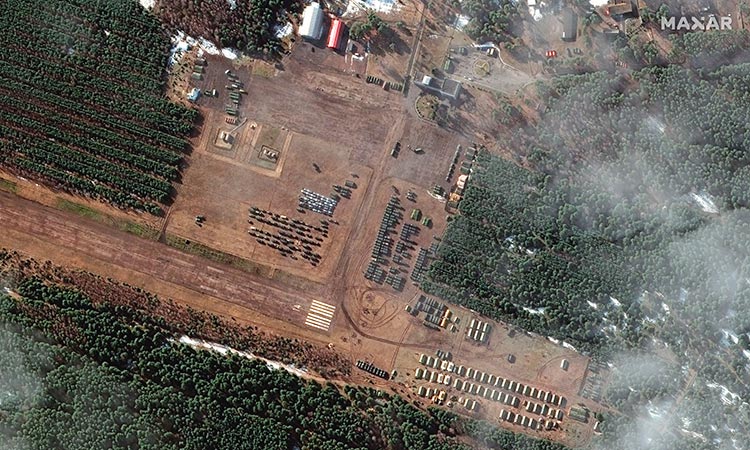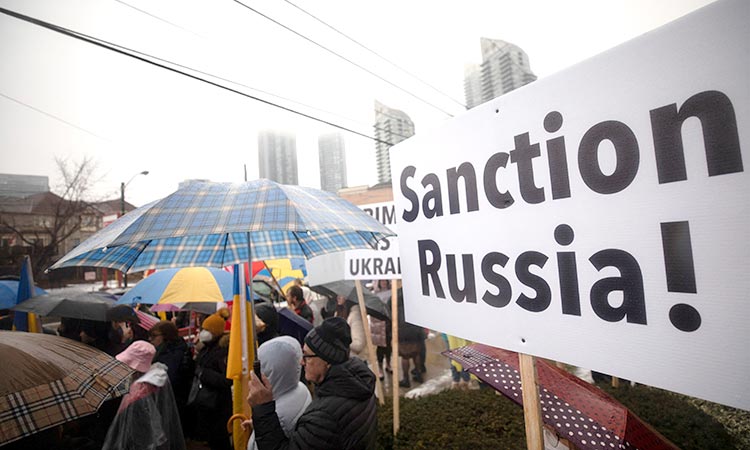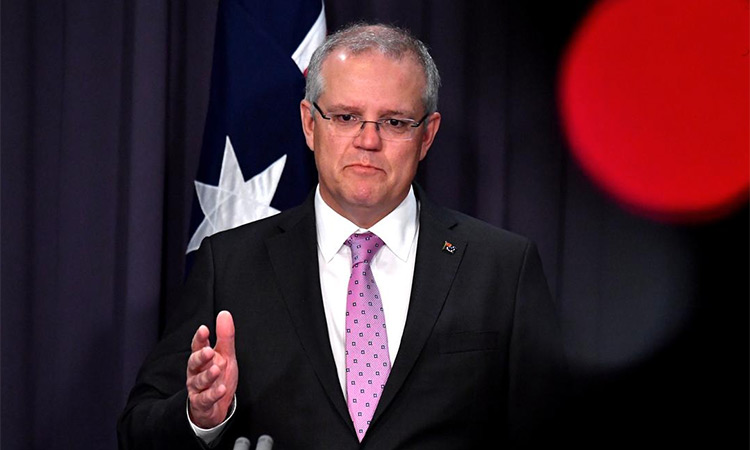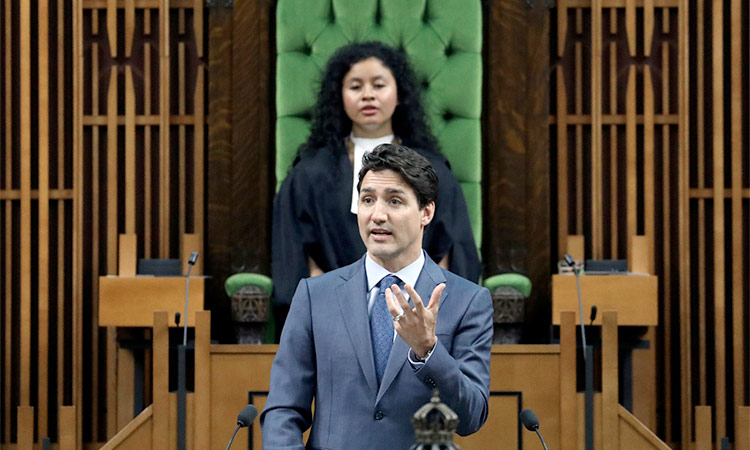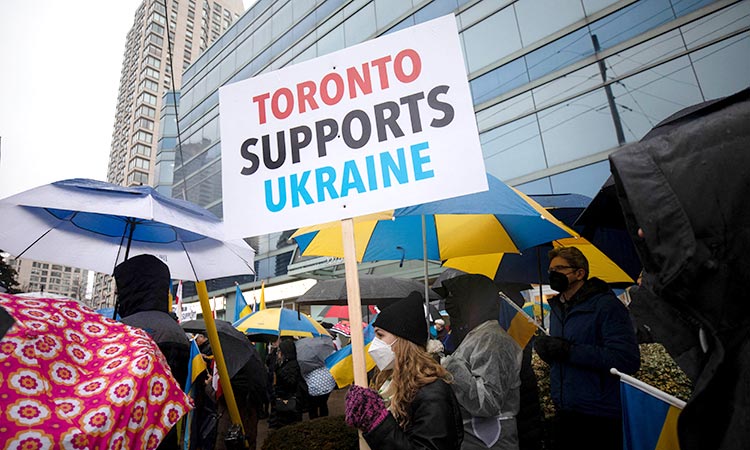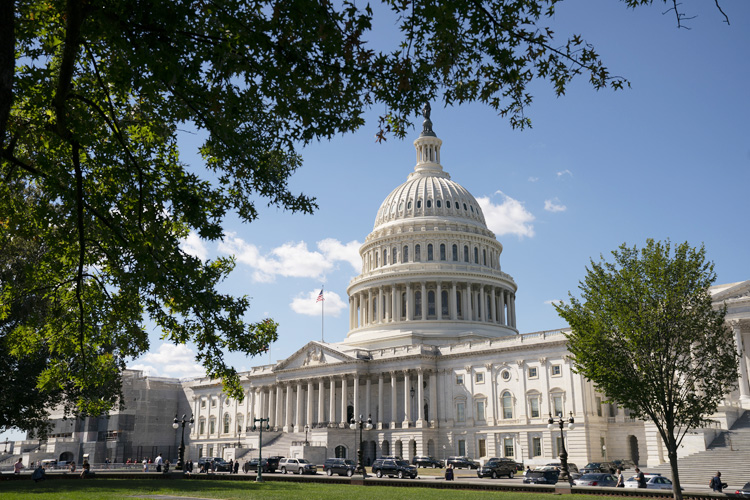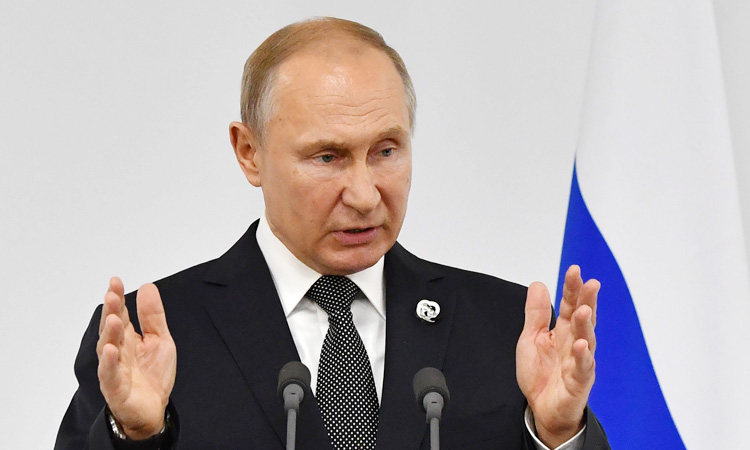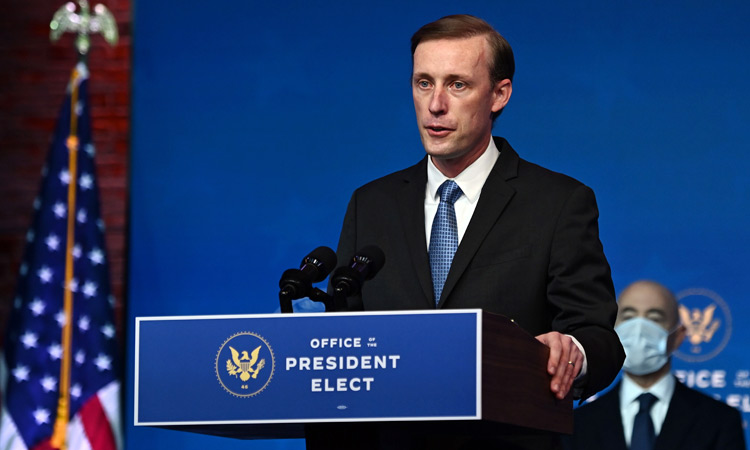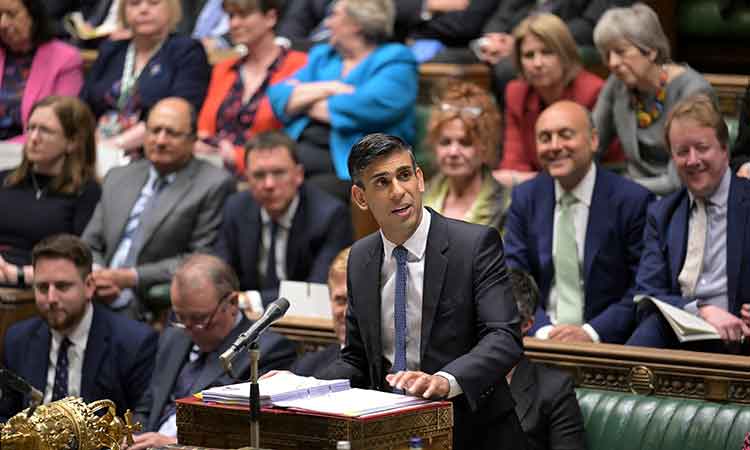US, Russia signal bigger confrontation ahead over Ukraine
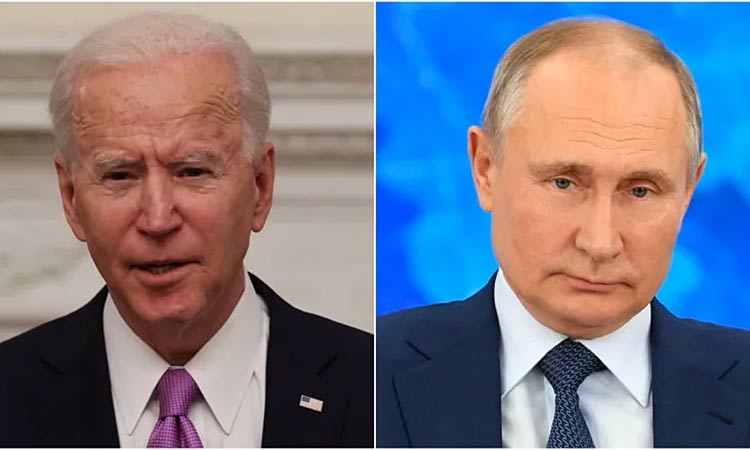
US President Joe Biden and Russian President Vladimir Putin
The East-West faceoff over Ukraine escalated dramatically on Tuesday, with Russian lawmakers authorising President Vladimir Putin to use military force outside his country and US President Joe Biden and European leaders responding by slapping sanctions on Russian oligarchs and banks.
Biden on Tuesday announced tough new sanctions against Russia for "beginning" an invasion of Ukraine but said there was still time to avoid war, even as Vladimir Putin signaled plans to send troops beyond Russia's borders.
READ MORE
Biden signs order targeting economic activity with Ukraine rebel regions
World leaders condemn Russian decision on Ukraine
Both leaders signaled that an even bigger confrontation could lie ahead. Putin has yet to unleash the force of the 150,000 troops massed on three sides of Ukraine, while Biden held back on even tougher sanctions that could cause economic turmoil for Russia but said they would go ahead if there is further aggression.
Japan and Australia followed suit early Wednesday with their own stringent penalties for Moscow and individuals connected with the aggression against Ukraine, with Australian Prime Minister Scott Morrison targeting members of Russia's security council for "behaving like thugs and bullies."
This image shows new deployments in rural areas of Belgorod, 20 kilometres off the border with Ukraine. AP
The measures, accompanied by the repositioning of additional US troops to the Baltic nations on NATO’s eastern flank bordering Russia, came as Russian forces rolled into rebel-held areas in eastern Ukraine after Putin said he was recognising the independence of the separatist regions in defiance of U.S. and European demands.
Russia's upper house, the Federation Council, gave Putin unanimous approval to deploy "peacekeepers" to two breakaway Ukrainian regions now recognised by Moscow as independent, and potentially into other parts of Ukraine.
A supporter holds a sign during a rally outside the Ukrainian Consulate in Toronto on Tuesday. Reuters
But he left the door open to a final effort at diplomacy to avert a full-scale Russian invasion.
"There's no question that Russia is the aggressor, so we're clear eyed about the challenges we're facing," the president said.
Australian Prime Minister Scott Morrison
speaks during an event. File photo
"Nonetheless, there is still time to avert the worst case scenario that will bring untold suffering to millions of people."
Biden's address followed a wave of sanctions announced by Britain and the European Union, after Putin recognized the self-declared Donetsk and Lugansk rebel republics.
Germany also announced it was halting certification of the Nord Stream 2 gas pipeline from Russia.
But Moscow said the sanctions regime would backfire.
The US-led sanctions will "hurt the global financial and energy markets," Anatoly Antonov, Russia's ambassador to the United States, said in a Facebook post, adding that ordinary Americans will "feel the full consequences of rising prices."
PM Justin Trudeau says up to 460 additional Canadian Armed Forces members are being sent to Latvia.
Prime Minister Justin Trudeau says Canada is sending hundreds more troops to eastern Europe and imposing new sanctions on Russia in response to the deployment of forces into Ukraine.
The prime minister says up to 460 additional Canadian Armed Forces members are being sent to Latvia and the surrounding region to bolster NATO in the face of Russian aggression.
He also says Canada is taking a number of steps alongside its allies to isolate Russia financially.
Meanwhile, about 300 people gathered outside the Ukrainian Consulate in Toronto on Tuesday evening to show support for Ukraine as fears grow over the possibility of a Russian invasion.
“Toronto supports Ukraine”, "Stand with Ukraine," the demonstrators chanted in the rain while holding umbrellas, placards and Ukrainian flags.
People gather in support of Ukraine during a rally outside the Ukrainian Consulate in Toronto on Tuesday. Reuters
The demonstrators wanted to show Putin that the Ukrainian community is "strong and united" in the face of Russian aggression, according to the Facebook page of the Toronto branch of the Ukrainian Canadian Congress, which organized the rally.
New Zealand's government summoned Russian Ambassador Georgii Zuev to meet Wednesday with top diplomatic officials who are urging Russia to return to diplomatic negotiations over Ukraine.
Foreign Affairs Minister Nanaia Mahuta is currently out of the country but said in a statement that the ambassador was called in "to hear New Zealand’s strong opposition to the actions taken by Russia in recent days, and condemn what looks to be the beginning of a Russian invasion into Ukraine territory."
The Ministry of Foreign Affairs and Trade confirmed to The Associated Press on Wednesday afternoon that the meeting had taken place but declined to provide any further details.
